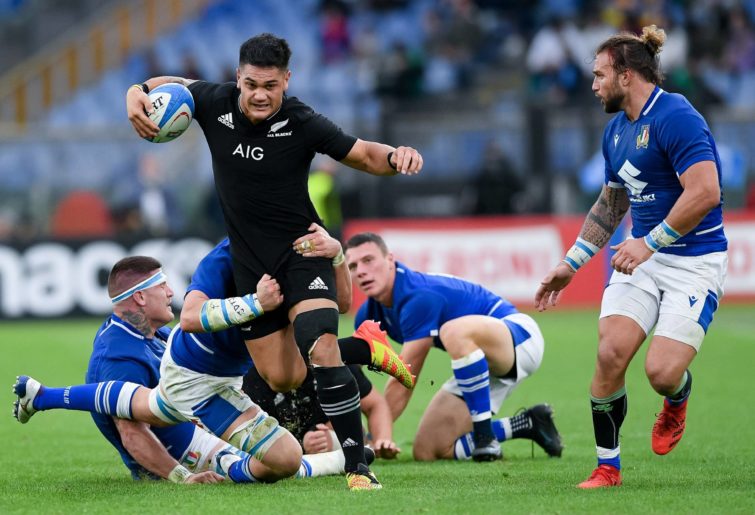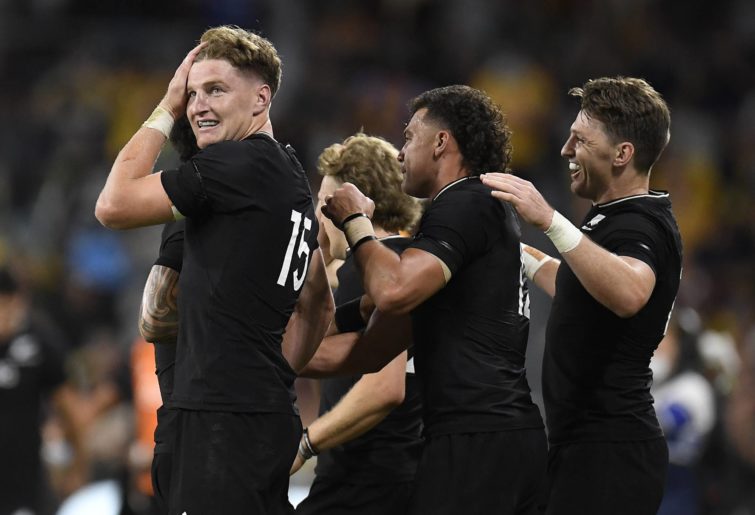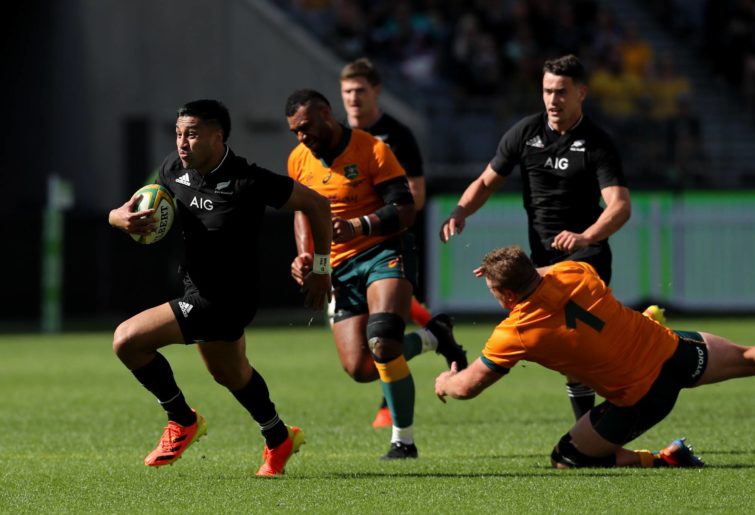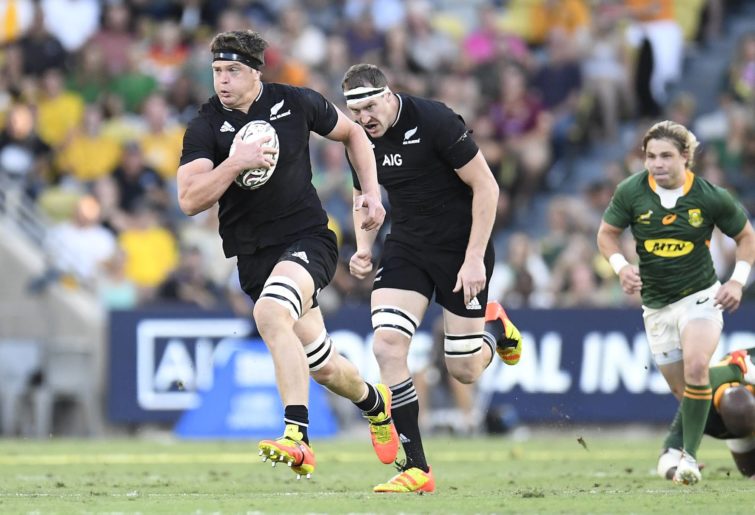After taking way longer than it should have, New Zealand Rugby has finally agreed the structure of its private equity transaction, monetising a portion of their future cash flows with some changes to the originally announced deal. So I thought it worth following up my article from last June on the subject.
For all the time elapsed and the altered structure agreed, what has become clear is that the primary issue has not been the transaction or the preferred investor, but the relationship between NZR and the players association, and I return to this in the summary.
Let’s look at the deal first.
The enterprise value of NZR has been increased from NZD$3.1 billion (A$2.9 billion) to NZD $3.5 billion (A$3.3 billion), off increased revenue flow of their sponsorship and television deals.
We should recognise here that in creating an auction between eventual winner Altrad, and undisclosed but rumoured bidders Amazon and Land Rover, NZR not only achieved a six-year record shirt sponsorship deal in the middle of a pandemic but proved the point that the All Blacks’ brand has serious international clout that can be financially leveraged in multiple markets with the right partner.
This means of course that Silver Lake will pay a higher premium for their involvement, as will the New Zealand institutions who get a chance to invest.

(Photo by Giuseppe Maffia/NurPhoto via Getty Images)
Silver Lake will pay NZD$200 million (A$187 million) for a convertible note that pays a four per cent yield and has the right of to convert to equity in 2025. Ignore the jargon here, in short Silver Lake who were to be 12.5 per cent equity holder will now be a six per cent holder at a slightly higher price.
New Zealand Financial Institutions will be offered the chance to buy equity of NZD$100 million (A$90 million) in the new commercial vehicle and we can only hope that this tranche will find a way to be offered to the New Zealand public.
All good so far, NZR is worth more on the back of its deals post June 2021, Silver Lake have to pay the premium for this increase in value, as will the New Zealand investors who to be able to invest in the NZD $100 million (A$90 million) that will be offered in equity to New Zealand institutions.
From reading the New Zealand press this week it appears the penny has finally dropped that Silver Lake are being brought on board to help NZR access global revenue streams they are not able to tap into in isolation.
This is not new news, but it does seem to have been a convenient blind spot for those who chose to criticise the initial proposal.
Revenue streams in all areas of business have seriously morphed over the last decade and sport cannot remain immune from the changes.
The traditional avenues of Test match tickets, television deals, merchandise and sponsorship are just not going to be enough to compete in the future sports market and accessing the online opportunities are critical to being able to compete going forward.
I have also noted how various media outlets and social media platforms have been praising the deal for its governance structure with independent directors, the way NZR has control over the entity, and how there are three designated ways for Silver Lake to exit if required.
I would like to point out that every single one of these now outstanding features were part of the original deal as presented and are nothing new, perhaps a little homework earlier in the timeline rather than screaming that the sky is falling, would have been in order.

(Photo by Ian Hitchcock/Getty Images)
A quick example from the last America’s Cup regatta shows the new revenue stream opportunities that are opening up.
Organisers reported 64 million repeat social media users and generated a total of 994 million hits over the course of the competition. 944 million! Neilson’s valued this social media profile at NZD$1.4 billion (A$1.3 million). A billion here, a billion there, pretty soon you are talking about real money.
Now, while we shouldn’t expect the darkness to be generating anywhere near this kind of value, if your average annual revenue in recent years sits somewhere around the NZD$180 million (A$168 million) mark, there is no doubt this is a truly transformative opportunity
There is an article in New Zealand Stuff on virtual reality viewing of matches that is truly astonishing, and Manchester City (who Silver Lake are invested in) are on the way to launching this.
Without Silver Lake, NZR would be out in the open market paying for and competing with others for the technology and expertise to monetise its brand in these new markets.
With Silver Lake at the table, they have the expertise in house with the added benefit of having a partner who now have their own money invested in the outcome. Nothing like having something to lose to focus the mind on profitable outcomes.
This brings us to whether, the NZD$100m (A$90 million) equity tranche offered to New Zealand Institutions, and I am presuming then offered via funds to the New Zealand public, is a worthwhile investment.
If you look at the NZR financials from 2016 to date, there isn’t a great fundamental case for investing in the stock with a five per cent dividend yield, especially in a world of rising interest rates and inflation.

(Photo by Will Russell/Getty Images)
But let’s be honest, no matter the underlying fundamentals, this offering will fly off the shelves because we all want a chance to invest in the All Blacks and don’t really care if the share certificate ends up laminated, framed and hung on the back of the toilet door next to the Ariadne and Judgecorp shares that are there to remind you not do anything stupid in the markets ever again.
Silver Lake are also being paid for underwriting this tranche and they won’t be needed.
Ironically, the inclusion of Silver Lake in the headline deal, and the prospect for a serious transformative step change in the enterprise value of NZR going forward, is what would get me interested as a personal investor, but I would like to know what protections there are to stop the New Zealand institutions who will get access to this NZD$100 million (A$90 million) from selling these shares to CVC or any other overseas buyer on the open market. Just a thought.
Join experts Brett McKay, Harry Jones and Jim Tucker for Ep.2 of The Roar Rugby Podcast. Stream it below, save it for later, or follow on Apple, Google, Spotify and more.
We can’t let the players association’s past views on the deal and Silver Lake slip through to the keeper without comment. Silver Lake have somehow gone from the devil incarnate to the best partner for the game going forward, remember the press releases?
Richie McCaw, Kieran Reid and Conrad Smith were all rolled out to raise questions on the original deal, all with seriously naïve questions that were never challenged while NZPA took its fair share of very direct public pot shots.
They included the following assertions, that selling a portion of the All Blacks is selling a part of our cultural history that is not for sale at any price, that there is a real risk of a financial conflict of interest, that this will reduce the special relationship between New Zealanders and their representative teams, and that there is a risk of cultural misappropriation because Silver Lake are an Anglo-American firm.
Silver Lake is now being whole heartedly endorsed by the players association as the correct partner to be going forward with; quite the change in stance. I for one would love to see an item-by-item explanation from the players association as to how each of the above concerns have been assuaged.

(Photo by Ian Hitchcock/Getty Images)
The cynics among us may point to the fact that NZRPA have now got the revenue sharing deal they wanted locked away as part of these strung-out negotiations, and perhaps to suggest such a thing may be churlish.
I mean who would put a deal that is now accepted as the best deal for the game in New Zealand at risk, simply to secure their own personal financial outcomes?
What is really clear to me is that NZR have mismanaged this process from the start.
They are well within their rights as the board that runs the game in New Zealand to do deals that will benefit the sport in the long run and I am sure they will be proved correct, but the world is a very different place to the one they have operated in for years and bringing your stakeholders along is critical in major transactions for entities of all sizes.
Having the players’ representatives, provincial unions and the Maori board around the table early on, explaining why they were going to tender looking for a private equity partner and what they wanted out of it, would have saved months of grief.
Having all of those groups back in a room while their advisers – investment bank Jefferies of New York (who have been appointed by World Rugby to do a similar deal for them) – explain exactly why Silver Lake is the preferred partner and have Silver Lake explain what they see as their value add to the game would have been hugely beneficial and totally transparent.
Instead, we had the NZR chair handing down tablets from the mount telling everyone this was the way forward with no disclosure as to the process, and if you don’t know who Jefferies or Silver Lake are, this would be a scenario where all one’s worst fears could run riot, and they did – see the comments section of my first article for a few examples.
An investment in two days of explanation would have stopped months of poison bickering in the press and a public united front would have stopped Joe Public from thinking the worst.
We of course now await the Maori board and provincial heads’ final approval before this deal goes ahead, and if NZR and its teams, provinces and clubs are to remain successful at all levels, this really has to work.
Could we now focus with what happens out on grass at international level now please, both our men’s and women’s teams have serious performance issues that need immediate attention.

































































































